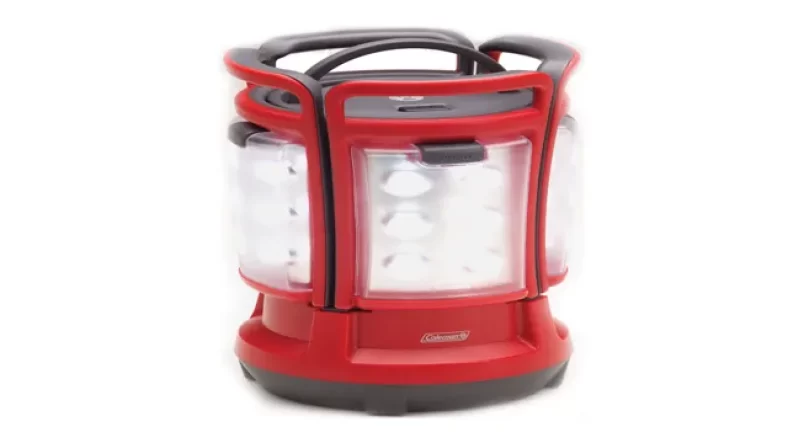Are you tired of constantly replacing light bulbs around your home? The frustration of bulbs burning out too quickly can be a thing of the past. In this article, we’re going to delve into the secrets of extending the lifespan of your light bulbs, saving you money and reducing waste in the process. From choosing the right type of bulb to maintenance tips, we’ve got you covered with practical advice that will keep your surroundings illuminated for longer periods.
Light bulbs are an integral part of our lives, but their lifespan often seems too short. Fortunately, by understanding a few key factors and implementing some simple strategies, you can significantly prolong their longevity.
Selecting the Right Light Bulbs
The journey towards a longer-lasting light bulb starts with the right choice. Opt for bulbs with higher energy efficiency ratings, such as LED bulbs. They might be slightly more expensive initially, but their extended lifespan and reduced energy consumption will make up for the cost.
Understanding Bulb Lifespan
Every light bulb comes with a specified lifespan indicated on its packaging. However, this estimate can vary based on several factors.
Factors Affecting Lifespan
Environmental Factors
The environment in which a light bulb operates plays a crucial role. High humidity, extreme temperatures, and exposure to water can all contribute to premature burnouts.
Usage Patterns
How you use a light bulb matters. Bulbs that are frequently turned on and off tend to have shorter lifespans compared to those left on for longer durations.
Voltage Fluctuations
Unstable voltage can put extra stress on a light bulb, leading to reduced longevity. Using voltage stabilizers can help mitigate this issue.
Proper Installation Matters
Installing a light bulb correctly is often overlooked but vital for its longevity.
Checking Fixture Compatibility
Before installing a bulb, ensure that it’s compatible with the fixture. Using bulbs with wattage higher than recommended can lead to overheating and shortened lifespan.
Avoiding Over-tightening
Over-tightening a light bulb can cause the base to crack or the filament to break. Tighten the bulb snugly but avoid excessive force.
Cleaning and Maintenance
Dust and debris can accumulate on bulbs, trapping heat and affecting performance. Regularly clean bulbs and fixtures to keep them shining bright.
Managing Heat Effectively
Heat is a significant factor in bulb lifespan.
Adequate Ventilation
Ensure that fixtures have proper ventilation to dissipate heat effectively. Overheating can drastically reduce a bulb’s lifespan.
Avoiding Enclosed Fixtures
Using bulbs not rated for enclosed fixtures in such setups can trap heat and lead to premature failure. Always check the bulb’s packaging for recommended uses.
Dimming and Its Impact
Dimming bulbs can save energy and extend lifespan. However, using improper dimmer switches or over-dimming can cause flickering and reduce longevity.
Turning Lights On and Off
The myth that leaving lights on saves more energy than turning them on and off is just that – a myth.
The Myth of Frequent On-Off
Contrary to popular belief, turning lights off when not needed actually extends their lifespan. The process of turning on is not as harmful as once thought.
Using Timers or Sensors
To ensure lights are not left on unintentionally, consider using timers or motion sensors. This way, you’ll only use them when necessary.
LED Bulbs: Longevity Champions
LED bulbs are the frontrunners in terms of lifespan.
The Advantages of LEDs
LEDs not only last longer but are also energy-efficient, durable, and versatile. They are worth the investment.
Quality Over Price
Invest in quality LED bulbs from reputable brands. Cheaper options might be tempting, but they often compromise on longevity and performance.
Room for Improvement: Power Surges
Power surges can significantly impact bulb lifespan. Using surge protectors can safeguard bulbs from voltage fluctuations.
Conclusion
By selecting the right bulbs, installing them properly, managing heat, and being mindful of usage patterns, you can dramatically prolong the lifespan of your light bulbs. Make informed choices to not only save money but also contribute to a more sustainable environment.
FAQs
- Do LED bulbs really last longer?
- Yes, LED bulbs have a much longer lifespan compared to traditional incandescent bulbs.
- Can using a dimmer switch extend bulb life?
- Yes, using a dimmer switch correctly can extend the life of your bulbs by reducing the power flowing through them.
- Is it better to leave lights on or turn them off?
- It’s better to turn lights off when they’re not needed. The idea that leaving lights on saves energy is a misconception.
- Can I use LED bulbs in any fixture?
- It’s essential to check the packaging and recommendations for each LED bulb to ensure safe and efficient usage.
- How do power surges affect light bulbs?
- Power surges can overload bulbs, leading to premature failure. Using surge protectors can mitigate this risk.





Leave a Reply